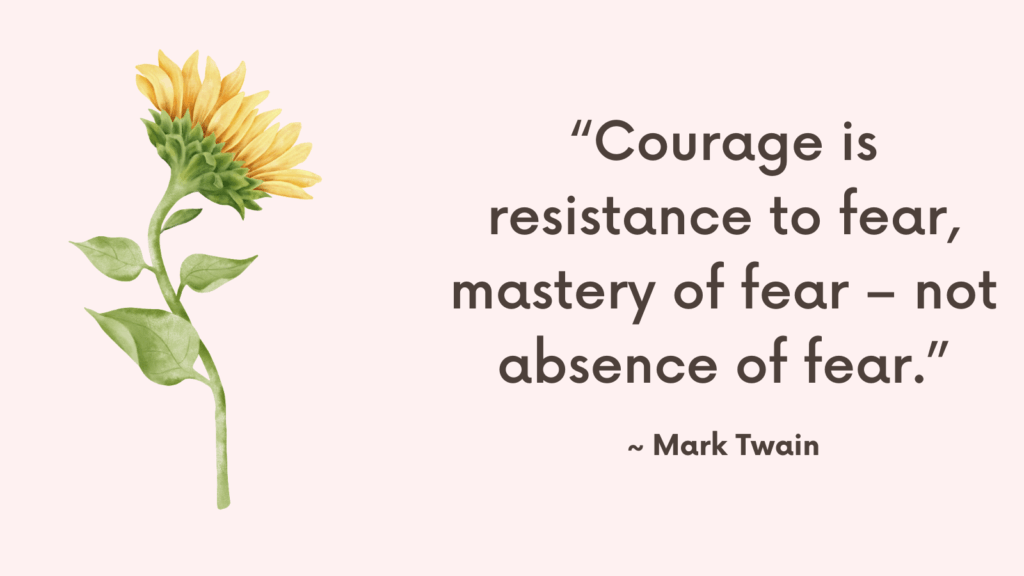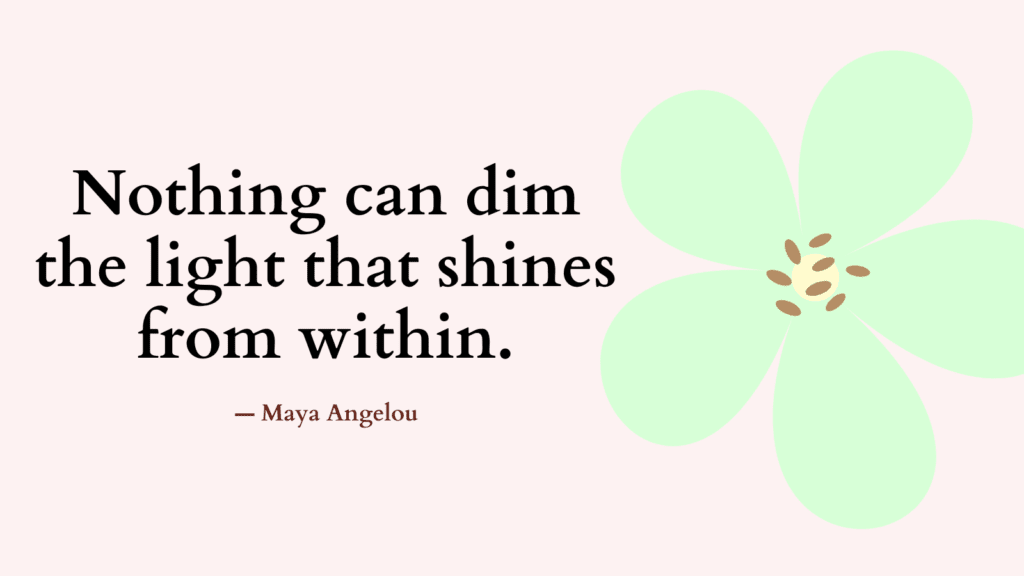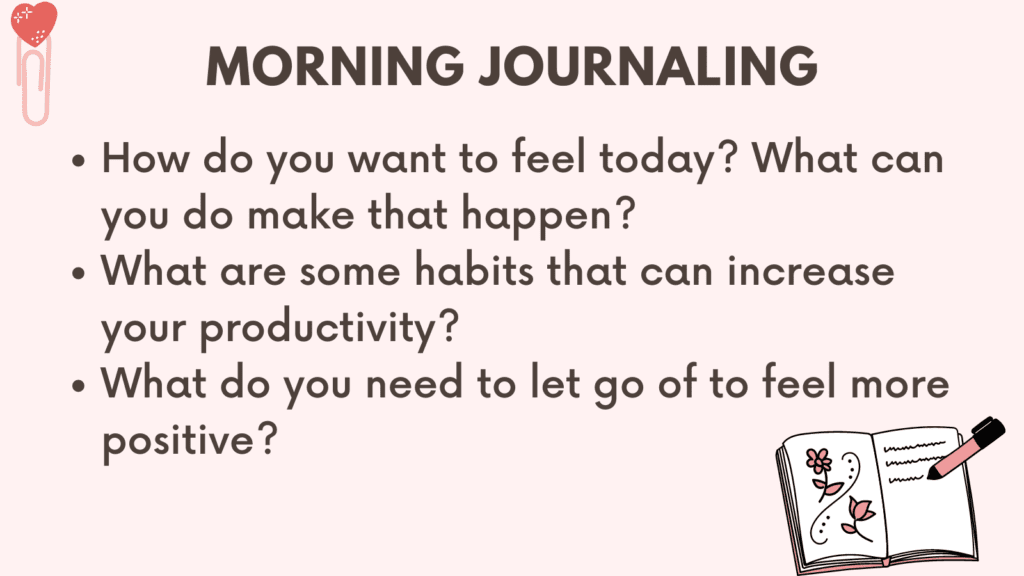This post contains some of the best addiction journal prompts.
What Are Journal Prompts?
Journaling prompts are questions or statements designed to inspire and guide you in your journal writing.
They can include a variety of topics, such as goal-setting, self-reflection, daily reflections, and creative writing exercises.
Journaling prompts can help you to explore your thoughts, feelings, and experiences, and can also serve as a tool for personal growth and development.
Related: How To Achieve Emotional Sobriety? (+FREE Emotional Sobriety Worksheets)
Addiction Journal Prompts
1. When did you first notice your addictive behavior?
2. What initially attracted you to the substance or behavior you’re addicted to?
3. How has addiction affected your relationships with family and friends?
4. Describe a specific event or situation where your addiction caused harm.
5. List three reasons why you want to overcome your addiction.
6. How has addiction impacted your physical health?
7. Explore any underlying emotions that contribute to your addictive behavior.
8. Write about a time when you felt in control and not consumed by addiction.
9. What are some triggers or high-risk situations for your addiction?
Related: What Is Emotional Sobriety and How to Achieve It? (+FREE Worksheets)
10. Describe a healthy coping mechanism you can substitute for your addictive behavior.
11. How does addiction affect your self-esteem and self-worth?
12. Write about the negative consequences you’ve faced due to your addiction.
13. Explore any co-occurring mental health issues that may be related to your addiction.
14. Reflect on any past attempts to quit or reduce your addictive behavior.
15. Write a letter to your future self, envisioning a life free from addiction.
16. Explore any childhood or past trauma that might have contributed to your addiction.
17. How has addiction affected your work or academic performance?
Related: How to Break the Addiction Cycle? [Definitive Guide]
18. Describe the support system you currently have or need in your recovery journey.
19. What are some strategies you can employ to manage cravings or urges?
20. Write about any fears or doubts you have regarding quitting your addiction.
21. How has addiction influenced your financial stability?
22. Reflect on the impact of addiction on your overall happiness and fulfillment in life.
23. Write a list of positive affirmations to reinforce your commitment to recovery.
24. Explore any patterns or cycles in your addictive behavior.
25. Describe a hobby or activity that brings you joy and can serve as a healthy distraction.
26. Write about a role model or person who has successfully overcome addiction.
27. How does your addiction affect your ability to prioritize or set goals?
28. Reflect on any spiritual or existential questions that arise from your addiction.
Related: 4 Stages of Addiction (+FREE Worksheets)
29. Write a gratitude list featuring things you appreciate beyond your addiction.
30. Explore any guilt or shame associated with your addictive behavior.
31. What are some potential long-term consequences of continued addiction?
32. Describe a situation where you successfully resisted temptation and chose sobriety.
33. Reflect on the impact of addiction on your sense of freedom and autonomy.
34. Write about a book or resource that has inspired you in your recovery journey.
35. What are some healthy habits or routines you can incorporate into your life?
36. Explore any distorted thinking patterns or beliefs that enable your addiction.
37. Describe a strategy to hold yourself accountable in your recovery process.
38. How does addiction affect your ability to connect with others emotionally?
39. Reflect on the importance of self-care in maintaining sobriety.
Related: How to Enjoy Being Sober? (+FREE Worksheets)
40. Write a letter to someone you’ve harmed due to your addiction, expressing remorse.
41. What are some potential triggers for relapse, and how can you mitigate them?
42. Describe a visualization exercise where you imagine your life without addiction.
43. Explore any social or environmental factors that contribute to your addiction.
44. Write about a sober milestone you hope to achieve in the future.
45. Reflect on any previous successes in managing addictive behavior.
46. How has addiction shaped your identity and self-image?
47. Describe a healthy support group or community that you can join.
48. Write about a person or memory from your past that still triggers your addiction.
49. What are some alternative ways to cope with stress or difficult emotions?
50. Explore any perceived benefits or rewards you associate with your addiction.
Related: How Long Does Sobriety Fatigue Last?
51. How does addiction affect your ability to make rational decisions?
52. Reflect on any occasions where you used your addiction to escape reality.
53. Write about a new hobby or skill you’d like to explore as part of your recovery.
54. Describe a fear or concern you have about seeking professional help for your addiction.
55. Explore any unmet needs or voids that you believe your addiction fills.
56. What are some potential roadblocks or challenges you anticipate in your recovery?
57. Write a letter to your addiction, expressing your desire to break free.
58. Reflect on any conflicts or strained relationships caused by your addictive behavior.
59. How does addiction impact your ability to manage your time effectively?
60. Describe a role or purpose that you believe will guide your recovery journey.
Related: What Is Emotional Addiction & How to Overcome It
61. What are some alternative coping mechanisms you can experiment with?
62. Explore any cultural or societal influences that perpetuate addiction.
63. Write about a time when you felt judged or stigmatized due to your addiction.
64. Reflect on the impact of addiction on your spirituality or religious beliefs.
65. Describe a healthy social activity or hobby that can help you build a sober support network.
66. Explore any feelings of powerlessness or lack of control that arise from your addiction.
67. What are some potential benefits and rewards of maintaining sobriety in the long term?
68. Write about a small step you can take today towards breaking free from your addictive behavior.
69. How has addiction affected your ability to trust yourself and others?
Related: How to Avoid Addiction? Top 9 Things You Can Do
70. Reflect on any coping mechanisms or tools you’ve used in the past to manage cravings or urges.
71. Describe a specific situation where your addiction interfered with your ability to fulfill responsibilities.
72. What are some potential triggers for using your substance or engaging in addictive behaviors?
73. Write about a person or memory that reminds you of why you want to overcome your addiction.
74. Explore any underlying feelings of shame or unworthiness that contribute to your addictive behavior.
75. How does addiction impact your ability to prioritize self-care and self-compassion?
76. Reflect on any previous attempts or strategies that have helped you resist relapse.
77. Describe a fear or challenge you anticipate in your journey towards recovery.
78. Write about a healthy coping mechanism you can engage in when faced with stress or emotional pain.
79. What are some aspects of your life that will improve once you break free from addiction?
Related: How Childhood Trauma Leads to Addiction: Top 9 Causes
80. Explore any negative self-talk or limiting beliefs that hinder your recovery.
81. Reflect on the role of self-compassion in overcoming addiction and building resilience.
82. Explore any underlying traumas or unresolved emotional issues that may contribute to your addictive behavior.
83. Write about a positive support system or individuals who can help you on your journey towards recovery.
84. Describe a relapse prevention plan or strategies you can implement to minimize the risk of falling back into addiction.
85. Reflect on the potential impact of addiction on your physical health and well-being.
86. Explore any feelings of guilt or regret that arise from the consequences of your addictive behavior.
Related: What Is a Functioning Addict? (+FREE Worksheets)
87. Write about a time when you successfully resisted temptation or cravings and overcame a challenging situation related to addiction.
88. Describe a fulfilling and meaningful life you envision for yourself beyond addiction.
89. Reflect on the importance of setting realistic goals and celebrating small victories in your recovery process.
90. Explore any patterns of negative thinking or distorted beliefs that contribute to your addictive behavior.
91. Think about the potential benefits of engaging in activities that bring you joy, such as hobbies, creative outlets, or physical exercise, as a way to distract yourself from addictive urges and improve your overall well-being.
92. Identify any triggers or situations that frequently lead to relapse and brainstorm strategies to avoid or cope with them effectively.
93. Reflect on the impact of addiction on your relationships and consider seeking therapy or counseling to address any relationship difficulties or repair damaged connections.
94. Consider joining a support group or attending therapy sessions specifically tailored to individuals recovering from addiction, as peer support can be tremendously helpful in maintaining sobriety.
95. Reflect on the role of self-care in your recovery journey and identify specific self-care practices that help you relax, recharge, and stay focused on your goals.
96. Explore the possibility of practicing mindfulness or meditation as a way to increase self-awareness, manage stress, and gain a deeper understanding of your addiction triggers.
97. Investigate different types of evidence-based therapy approaches, such as cognitive-behavioral therapy (CBT), dialectical behavior therapy (DBT), or motivational interviewing, that have proven effective in treating addiction.
98. Reflect on the potential negative impact of substance use on your mental health and consider seeking dual diagnosis treatment if you suspect a co-occurring disorder.
99. Focus on building a healthy routine with regular sleep patterns, nutritious meals, and exercise, as these factors can significantly contribute to your overall well-being and recovery.
100. Celebrate milestones along your recovery journey, whether it’s days of sobriety, personal achievements, or positive changes in your life, to reinforce your progress and maintain motivation.
Related: 5 Stages of Addiction Recovery (+FREE Worksheets)
Why Use Addiction Journal Prompts?
Addiction journal prompts can be a helpful tool for individuals who are struggling with addiction or in recovery. Here are some reasons why:
1. Self-reflection: Journal prompts can help individuals reflect on their thoughts and feelings related to addiction. This can help them understand triggers, patterns of behavior, and emotions associated with their addiction.
2. Goal setting: Writing down goals and aspirations related to recovery can help individuals stay motivated and focused on their path towards sobriety.
3. Accountability: Journaling can be a way to hold oneself accountable for actions and decisions related to addiction. By writing down thoughts and feelings, individuals can become more aware of their behaviors and make conscious choices to avoid negative habits.
4. Emotional regulation: Addiction journal prompts can help individuals identify and regulate their emotions. This can be especially useful in managing stress, anxiety, or depression, which are common triggers for addiction.
Overall, addiction journal prompts can be a helpful tool for self-exploration, self-improvement, and recovery from addiction.
Related: Am I Addicted To My Phone Quiz (+Digital Detox Challenge)
How to Use Addiction Journal Prompts?
Here are some steps on how to use addiction journal prompts effectively:
1. Choose a prompt that resonates with you. There are many addiction journal prompts available online or in books. Choose one that speaks to you and meets your needs.
2. Set aside some time for reflection. Carve out some time each day to reflect on the prompt and write down your thoughts and feelings. You could set a specific time each day or schedule it according to your own preferences.
3. Write freely. Don’t worry about grammar or spelling errors, just write whatever comes to mind. The idea is to let your thoughts flow and to not censor yourself.
4. Be honest and open. Addiction can be a challenging topic to explore, but it’s important to be honest and open with yourself. This is a safe space for you to express your thoughts and feelings, so don’t hold back.
5. Reflect on what you’ve written. After you’ve finished writing, reflect on what you’ve written. Think about any insights you gained, any patterns you noticed, and how you can apply what you’ve learned to help you on your recovery journey.
Related: Addiction Recovery Resources

Conclusion
Addiction journal prompts are a great way to explore your thoughts, feelings, and experiences related to addiction.
By dedicating time for self-reflection and being honest with yourself, you can gain a deeper understanding of your addiction and take steps towards healing and recovery.



